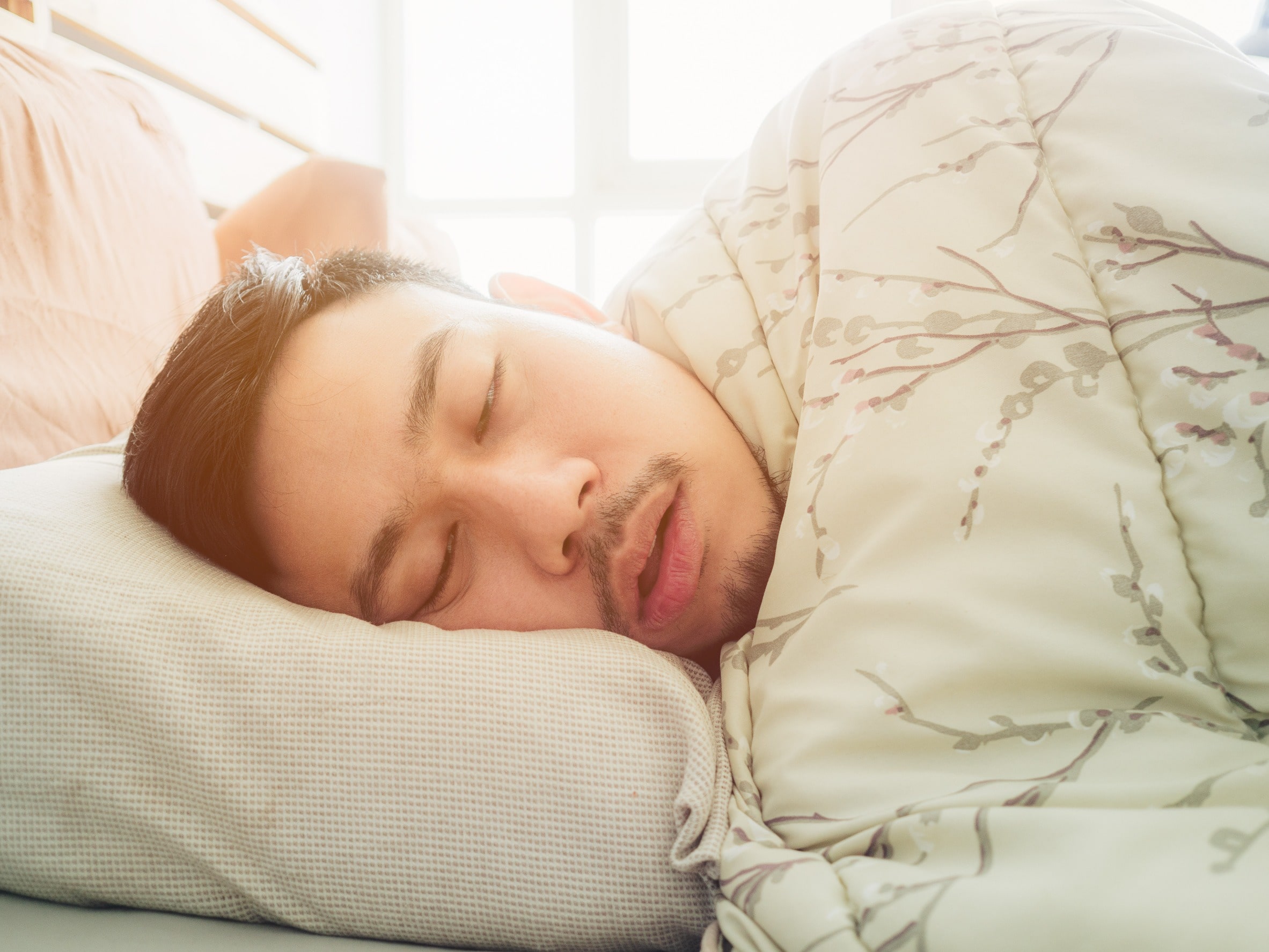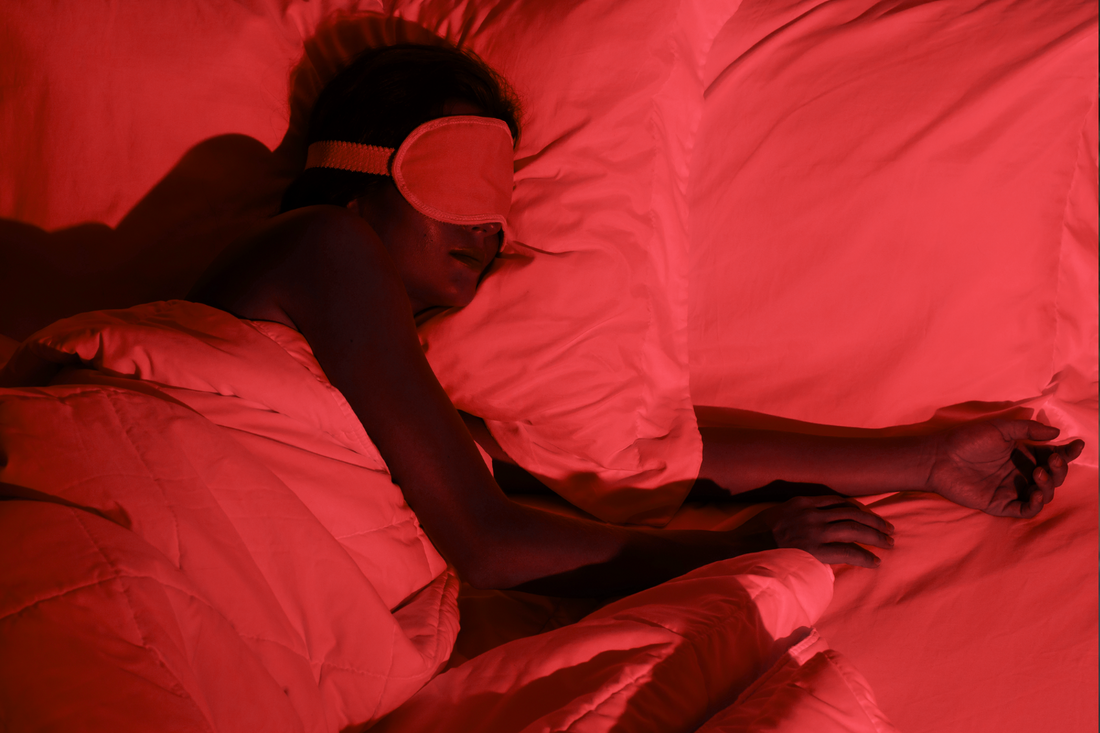Advanced Sleep Therapy - Achieve Deep, Restful Sleep
Advanced Sleep Therapy - Achieve Deep, Restful Sleep
Blog Article
Efficient Therapy Solutions for Handling Sleep Disorders and Enhancing Restful Rest
In the world of medical care, the management of rest disorders and the mission for peaceful rest are crucial parts of overall wellness. As we navigate the intricate landscape of sleep disorders and look for to enhance our rest experience, a much deeper understanding of these therapy options might hold the trick to unlocking a more rejuvenating and meeting restorative trip.
Cognitive Behavior Modification for Sleeping Disorders (CBT-I)
Cognitive Behavior Modification for Sleeping Disorders (CBT-I) is an organized, evidence-based treatment approach that concentrates on attending to the underlying elements adding to sleep disturbances. This sort of treatment intends to customize actions and thoughts that aggravate sleeping disorders, inevitably promoting healthy and balanced rest patterns. CBT-I typically involves several vital components, including cognitive treatment, rest restriction, stimulation control, and rest hygiene education.
Cognitive treatment aids people recognize and transform adverse thought patterns and beliefs about rest that may be hindering their ability to fall or stay asleep. Rest constraint includes limiting the quantity of time invested in bed to match the individual's actual sleep period, therefore increasing rest performance (sleep disorder treatment). Stimulation control strategies assist develop a solid association in between the bed and rest by urging individuals to go to bed only when sleepy and to stay clear of taking part in boosting tasks in bed
In addition, sleep health education concentrates on developing healthy and balanced rest habits, such as preserving a consistent rest routine, producing a relaxing going to bed regimen, and enhancing the sleep setting. By resolving these elements comprehensively, CBT-I offers an efficient non-pharmacological intervention for taking care of sleeping disorders and boosting overall rest high quality.
Rest Health Practices
Having developed the foundation of cognitive restructuring and behavior modifications in addressing insomnia via Cognitive Behavioral Therapy for Insomnia (CBT-I), the focus now shifts towards discovering important Rest Hygiene Practices for preserving ideal sleep quality and overall well-being.
Sleep hygiene techniques encompass a series of practices and environmental aspects that can significantly influence one's ability to drop asleep and stay asleep throughout the night. Constant rest and wake times, producing a relaxing bedtime regimen, and maximizing the sleep atmosphere by maintaining it dark, peaceful, and cool are critical parts of great rest hygiene. Restricting exposure to screens prior to bedtime, preventing energizers like caffeine close to bedtime, and participating in regular physical task throughout the day can likewise promote far better sleep quality.
Additionally, practicing relaxation strategies such as deep breathing workouts or reflection before bed can aid calm the mind and prepare the body for rest. By integrating these sleep hygiene methods right into one's day-to-day regimen, individuals can establish a healthy and balanced sleep pattern that sustains relaxing sleep and general well-being.
Leisure Techniques and Mindfulness
Carrying out leisure techniques and mindfulness methods can play an essential function in fostering a sense of tranquility and promoting top quality sleep. Additionally, directed images can assist transport people to a peaceful area in their minds, aiding in stress decrease and boosting rest quality.
By integrating these techniques right into a bedtime regimen, people can indicate to their bodies that it is time to relax and prepare for sleep. Overall, incorporating relaxation methods and mindfulness methods can significantly add to handling rest disorders and improving total sleep top quality.

Medicine Options for Rest Disorders
After discovering relaxation techniques and mindfulness techniques as non-pharmacological treatments for improving sleep high quality, it is necessary to think about medicine options for individuals with sleep conditions. In cases where way of life modifications and treatment do not give adequate alleviation, medicine can be a beneficial device in handling sleep disruptions.
Typically suggested medications for rest disorders consist of benzodiazepines, non-benzodiazepine hypnotics, antidepressants, and melatonin receptor agonists. Benzodiazepines, such as diazepam, are sedatives that can assist generate rest, but they are typically recommended for short-term usage as a result of the risk of dependancy. Non-benzodiazepine hypnotics like zolpidem are additionally utilized the original source to deal with insomnia and have a reduced danger of dependence compared to benzodiazepines. Antidepressants, such as trazodone, can be useful for people with co-occurring anxiety and rest disturbances. Melatonin receptor agonists, like ramelteon, target the body's all-natural sleep-wake cycle and can be valuable for controling sleep patterns.
It is critical for people to talk to a healthcare copyright to establish one of the most proper drug alternative based on their specific rest disorder and case history.
Light Treatment for Body Clock Law
Light treatment, additionally referred to as phototherapy, is a non-invasive treatment method made use of to regulate circadian rhythms and improve sleep-wake cycles. This treatment includes exposure to bright light that imitates natural sunlight, which aids to reset the body's body clock. By exposing people to particular wavelengths of light, usually in the morning or night depending on the desired impact, light therapy can successfully adjust the circadian rhythm to advertise wakefulness throughout the day and enhance relaxing sleep at night.
Study has revealed that light treatment can be specifically advantageous for people with circadian rhythm conditions, such as delayed sleep phase syndrome or jet lag. It can also be handy for those experiencing seasonal depression (SAD), a sort of clinical depression that normally happens during the winter season months when all-natural light direct exposure is reduced. Light therapy is normally well-tolerated and can be used combined with various other treatment methods for sleep disorders to enhance end results and enhance overall sleep high quality.
Final Thought
To conclude, efficient therapy services for handling sleep conditions and boosting relaxed sleep consist of Cognitive Behavioral Treatment for Sleep Problems (CBT-I), resource rest hygiene practices, relaxation techniques and mindfulness, medicine alternatives, and light treatment for body clock regulation. These methods can assist people enhance their rest high quality and total health. It is essential to consult with a healthcare copyright to figure out one of the most suitable technique for addressing rest issues.
As we navigate the intricate landscape of sleep disorders and seek to enhance our sleep experience, a much deeper understanding of these treatment services may hold the key to opening a much more relaxing and meeting corrective discover this trip.
Rest limitation includes limiting the amount of time spent in bed to match the person's real sleep period, thereby enhancing sleep effectiveness. Consistent sleep and wake times, creating a relaxing going to bed regimen, and enhancing the rest setting by keeping it dark, silent, and cool are vital parts of excellent sleep health. Light therapy is generally well-tolerated and can be used in conjunction with other therapy approaches for sleep conditions to enhance outcomes and enhance general sleep high quality.

Report this page